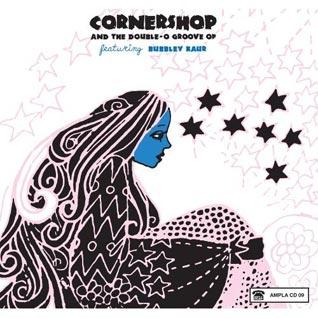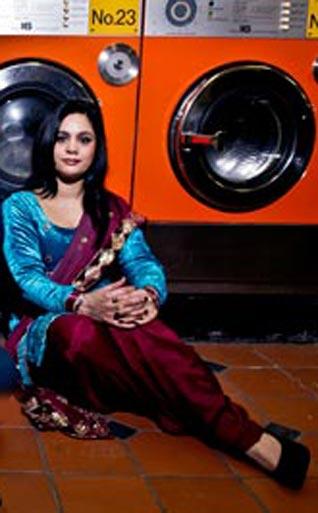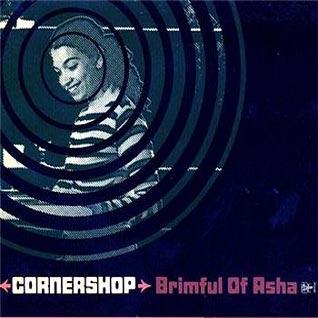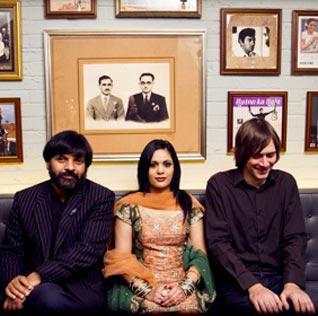Music
Going Bubbley at The Cornershop
by JOHN LEWIS
'For me, Punjabi folk music is a lot like hip-hop," says Cornershop's frontman, Tjinder Singh. "It's simple, it's parochial, it sends out a message. It's sometimes a bit rude and earthy, it's often done in duets, it's got a very big beat behind it, and it represents what's going on, in a neighbourhood or a village. And it can be taught from village to village. Even the distribution of it is traditionally the same - people pass around cassettes."
It seems just like the kind of slightly surreal utterance Tjinder often bandies around in interviews, but Cornershop's rather wonderful new album literalises this simile. On it, some of the hallmarks of Punjabi folk music - including melismatic vocals, dhol drums, the twang of the one-string toombi - are set against Cornershop's distinctively eccentric take on hip-hop, all thrift-store samples and funky breakbeats.
Tjinder Singh and Ben Ayres, the core members of Cornershop since the band formed 20 years ago, are sitting in a greasy-spoon cafe in north London with Bubbley Kaur, the singer whose heavenly voice fronts every track on this new album.
A shy, petite, thirtysomething mum dressed in a smart salwaar kameez, she makes an unlikely pop star. She was born in New Delhi to a father from the Punjab and a mother from Mumbai, and moved to Lancashire as a baby. She first met Tjinder in the mid-1990s in Preston (where he and Ayres studied at the polytechnic), and met again a decade later in a launderette opposite Islington Town Hall (she was doing the service washes).
A mutual friend had heard Bubbley Kaur sing at a wedding reception, and suggested Cornershop record with her. "As soon as we heard her voice," Ayres says, "we knew it would work. We were bowled over by her melodies and by the sound of her voice."
"We both had fathers who were active in the gurdwara," Tjinder says. "And, like Bubbley, I only listened to Punjabi folk music until the age of about 10. But I think our lives went in rather different directions."
"I'm rather more traditional," Bubbley says. "I don't listen to much western pop music. I'd barely heard anything by Cornershop before I started working with them. The only songs I ever sang had been devotional songs or Punjabi folk music. So, when I started to write songs for the first time, they were based on those folk songs, but with an important twist. Traditional Punjabi songs are always men singing about women. My songs are from a female standpoint. They're all about women looking at men."
The album has taken a long time to complete - the first track they recorded, Topknot, was initially released as a stand-alone single in 2004. Although it never achieved the success of Cornershop's all-conquering 1997 chart-topper, Brimful of Asha, Topknot was played to death by John Peel, topped end-of-year critics' choice lists and made the lower reaches of the UK chart, while a remix of it by Pulp's Steve Mackey, featuring MIA, got picked up by many influential US hip-hop DJs.
"This album's been a very slow process," Ayres says. "Bubbley's got a family to bring up and other things to get on with, and we've been getting on with other stuff too. We've done a whole other album [2009's Judy Sucks a Lemon for Breakfast] since we started it. So we've had to work on this project bit by bit."
Every few months Bubbley Kaur would bring in a song, which would then be worked on at Tjinder Singh's studio at his home in London.
Bubbley's melodies would be accompanied by a strange sonic barrage compiled using samples and session musicians - folksy fingerpicking guitar, baroque harpsichords, trumpet roundels, big-band horn arrangements, glam rock shuffles and snatches of kitsch exotica.
"Occasionally we chose accompaniments that fitted the melodies, but usually we did the complete opposite," Tjinder says. "We'd choose backings that seemed entirely inappropriate and see how far we could take them. You end up with a bicycle with square wheels, but as long as it just about goes, we'd stick with it."
"Bubbley didn't like some of the backings at first," Ayres says. "Like one of the tracks, called The Biro Pen. She thought that one sounded like a pub piano."
"Oh my god," Bubbley says. "That was a sad song about my sister. But the backing sounded like Chas and Dave. I was saying, 'Look, I don't want Chas and Dave!' But I liked it in the end."
Ayres and Tjinder seem like protective big brothers to Bubbley. So protective, indeed, that "Bubbley Kaur" isn't actually her real name, but a pseudonym (a random line from Cornershop's provocatively titled 2002 track Wogs Will Walk).
"I think that desire for anonymity is an Asian thing," Tjinder says. He recounts how, in the early days, even as Cornershop were starting to appear on magazine covers, he was still telling his parents that he merely "worked for a record label. I'd pick up my own phone and answer it 'Wiiija Records', the label we were signed to. You need that to protect you from people, in your own community and in others, who might not like what you're doing. When we started out we got death threats."
"We got angry reactions from white and Asian people," Ayres says.
"We liked to offend everyone equally," Tjinder quips.
Cornershop have never courted an Asian audience, so it's a surprise to hear their tracks playlisted on Sunrise Radio and the BBC Asian Network. Even their little-documented second incarnation in the mid-1990s - where they shed their shambolic guitar/ bass/ drums lineup and regrouped with sitar, tamboura, dhol drum and harmonium - scarcely saw them move out of the indie circuit.
"We only did that so we could fit the entire band and all our gear in an estate car," Tjinder deadpans. "It made getting to gigs a bit easier."
And this new expression of their music isn't about looking outwards for an audience, but inwards to challenge themselves.
"If there's one thing Cornershop want to do, it's to try something new with every track," Tjinder says. "We don't want to be like the Manic Street Preachers, who just release the same record over and over again, despite having so much support to do whatever they want to do. The only thing that all our records have in common is that each one tries to sound utterly different."
Cornershop and the Double O Groove Of, featuring Bubbley Kaur, is out on 14 March on Ample Play/Rough Trade.
[Courtesy: The Guardian]
February 18, 2011






